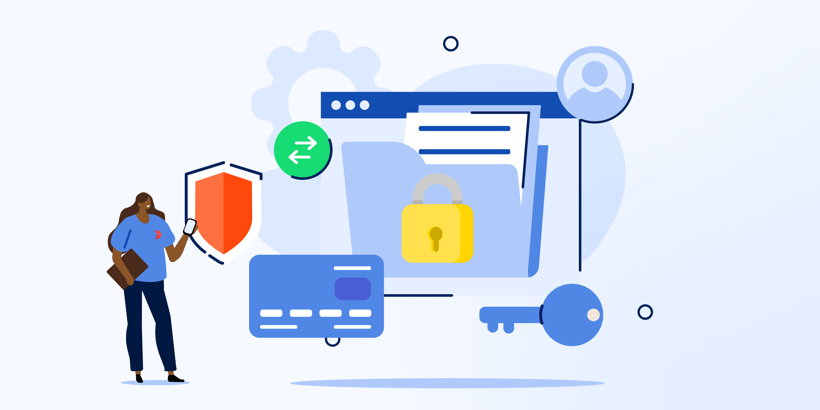What Are Chargebacks, and How Can You Prevent Them?

As online transactions increase, so does the risk of lost revenue due to chargebacks. In this article, we unpack what chargebacks are, how they can impact leisure and attraction operators, and how ROLLER helps you avoid and prevent chargebacks.
What is a chargeback?
A chargeback occurs when a customer disputes a transaction with their credit card issuer or bank, leading to a reversal of the charged amount. While chargebacks protect consumers from fraudulent activities or unauthorized transactions, they can also create challenges for venue operators when chargebacks arise.
Let’s say a guest's stolen credit card details are used to purchase tickets at your venue, or a guest is accidentally charged twice. In these circumstances, a guest can file a chargeback with their bank to return the funds.
When the cardholder’s bank is notified of the chargeback, the bank withdraws the disputed funds from your venue’s account and returns them to your guest. Once this has occurred, you have the opportunity to dispute the chargeback.
How do chargebacks happen?
There are various reasons that chargebacks occur. Some examples include:
- Fraud: When a guest’s card information is stolen or used without consent.
- Quality problems: If a product or service is defective or doesn’t meet a guest’s quality expectations.
- Billing errors: If a guest is charged the incorrect amount, charged twice, or receives unexpected charges.
- Guest confusion: A guest has made an accidental purchase, doesn’t remember making the purchase, or doesn’t recognize the trading name on their card statement.
The difference between chargebacks and refunds
With a refund, the guest asks for a refund directly from the venue in line with their refund policy. This is different from a chargeback, where the guest contacts their bank to have the payment reversed.
The key difference between chargeback and refund processing is that the chargeback process involves more steps and takes longer. Most importantly, the chargeback process incurs fees for your venue, charged by the card issuing bank.
Understanding the impact of chargebacks on attraction operators
Before we break down how ROLLER helps operators protect against chargebacks, let’s run through what some of the effects of chargebacks can be if they aren’t handled effectively.
1. Financial loss
Chargebacks can result in significant revenue loss for operators. You not only lose the transaction amount disputed by the guest, but banks and payment processors can impose additional fees for the chargeback.
2. Brand reputation
We know how important the guest experience is to your venue’s success – negative word of mouth spreads quickly and can drive prospective customers away. If guests repeatedly receive fraudulent or incorrect charges from your venue, it can tarnish your venue’s reputation, leading to further lost revenue.
3. Operational disruption
It takes significant time and resources to manage chargebacks, not only for your guests but for your business. Without the right chargeback prevention strategies, operators must allocate significant efforts to disputing chargebacks, taking time away from more critical tasks.
Managing chargebacks with ROLLER Payments
ROLLER Payments, ROLLER’s integrated payment processing functionality, has several industry-leading features that not only help you manage chargebacks easily when they arise but also work to help you avoid them from occurring in the first place.
Lost Island has seen a 92% decrease in chargebacks since switching to ROLLER.
I can easily see the difference it has on our bottom line. We went from 20 chargebacks each month to less than 5 for the whole season this year.

Let’s break down how ROLLER helps operators like Lost Island mitigate chargebacks.
Proactive fraud prevention
Because ROLLER works exclusively with leisure and attractions operators, we can more effectively identify warning signs of fraud for these types of businesses. We track instances of fraud across our customer base, which means we can more easily block any suspicious activity, limiting the chances of the same behavior repeating or a guest trying to submit fraudulent transactions across different venues.
Secure payment processing
ROLLER offers secure payment methods to protect against fraudulent transactions.
For bookings made over the phone or via email, you can send your guests a secure payment link with in-built 3D Secure 2.0 customer authentication. If a chargeback arises from this transaction, the liability sits with the issuer rather than your venue, meaning we’ll defend this chargeback on your behalf.
Streamlined chargeback management
ROLLER’s instant chargeback notifications ensure you can save time managing chargebacks and easily understand what must be done to dispute that chargeback. As ROLLER Payments is built directly into the ROLLER platform, you don’t need to reconcile the chargeback with the guest booking manually; you can access this information all in one place. ROLLER also helps you manage the chargeback process – including gathering the required documentation to dispute the chargeback – so you don’t have to work directly with the bank.
With ROLLER Payments, you get an email immediately that says, here's a chargeback for this booking. I click on that hyperlink, and it pulls it right up instead of having to reconcile between systems. I now have a much easier time looking into it and seeing if there's any further steps I need to take.

Read this next: Tips for Preventing Chargebacks
Get started with ROLLER Payments
The revenue you lose to chargebacks is often not factored into the equation when shopping for a payment processor. Rather than focusing purely on processing fees, make sure that you choose a provider that will help you limit this revenue loss.
Get a demo today to learn more about how ROLLER can help you manage chargebacks.
When there’s pushback from ownership or management about credit card fees because, let's face it, there’s always going to be a question of, is somebody else lower? ROLLER Payments is worth it because we're saving those charges that we were previously losing.

Read this next: Is Fraud Getting the Best of Your Venue?
Related articles
.png)
.png)
Payment Trends That Will Shape 2026: Insights from the Attractions Industry Benchmark Report
.png)
Enhance your guest experience
Get free education, tips and inspiration to help you run a successful venue.
